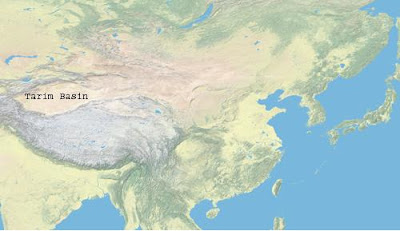"Prewar Revolutionary Writer Kobayashi Takiji and the Fukushima Catastrophe"
Professor Field’s interest lies in the proletarian literature movement
of the 1920s and 30s in Japan, and her talk centered on an amalgamation of Marxism,
environmentalism, literature, class distinctions, and the repercussions of
nuclear disaster. In particular, her lecture hinged on a dichotomy between life
and livelihood; those without resources must choose between their personal
health and safety and the ability to put food on the table. This is especially
relevant in Japan, as the Fukushima catastrophe intensified the gravity of this
choice. Through a mixture of anecdotes, statistics and summaries of stories
from Kobayashi’s oeuvre, Prof. Field sought to demonstrate that the nuclear
disaster has put even more pressure on the lower class people who are already
struggling, further exemplifying the idea that the people who most need a
movement are in a position of being least able to participate in it. This
results in both an inability to escape one’s predicament as well as resentment
towards those who do have the luxury to protest the goings-on (specifically,
the Tokyo-ites who travel to the Tomari nuclear plant in Hokkaido to hold
rallies). Adding to these concerns are of course the health problems following
from radiation from the nuclear plants.
Faced with all these overwhelming issues, people are powerless. Prof.
Field explained that those with means would buy up all the uncontaminated food
and move to less affected areas, while those who live and work in and around
the nuclear plants were trapped, even unable to protest their condition. Those
who opposed the plants were labeled unpatriotic or accused of not showing
solidarity.
Her points were buttressed by references to the proletarian movement in
general, especially a discussion of why literature from the period is worth
studying. Intellectuals at the time were very concerned with form and content,
and art and politics. Literature was seen as a necessary (but not sufficient) aspect of the
movement; by crafting characters and embodying the struggles of the people in
the form of the novel, the intellectuals in the proletariat were able to
describe their struggles in a way with which people could emphasize. Prof.
Field herself came to understand, for instance, the reaction of the local
people to the Tokyo-ites protesting Fukushima by immersing herself in
proletariat literature.
The talk itself was passionate and heartfelt. It was clear that the issues
at hand were of great importance to Prof. Field. Her presentation, however, was
not particularly focused. We jumped from topic to topic, returning to one or
the other at random intervals, and the segues between topics were, in general,
tenuous at best. The overall structure and thesis of the lecture was often
ambiguous. Accompanying audio/visual material might have rectified this unclear
chronology. Furthermore, the talk devolved from literary and social analysis
into a plea to recognize the vulnerability of our world, as Prof. Field
exclaimed, “LDP and Tepco, do they think they are somehow invulnerable to
nuclear radiation?” She expressed a desire to galvanize the 1% to recognize
that they are not invincible. While this point is indeed valid, it was unfortunate
that a thorough discussion of Kobayashi’s work was subordinated to her
particular worldview. Kobayashi’s literature was a side-note, only utilized to
reiterate general points about society. Overall, the lecture was impassioned
and interesting, but unfortunately I left feeling dazed and uncertain whether I
had learned anything about Japanese proletarian literature.
Norma Field is the
Robert S. Ingersoll Distinguished Service Professor Emerita in Japanese Studies
in East Asian Languages and Civilizations at the University of Chicago. She is
the author, co-author, and translator of numerous scholarly works, including Splendor of Longing in The Tale of Genji, In
The Realm of a Dying Emperor, From My Grandmother's Bedside, and Natsume
Soseki's And Then. For more
information about upcoming CEAS events, visit their website.
N. Castle, SAS '14


Comments
Post a Comment
We follow the House Rules as outlined by the BBC here.